Former Amazon VP Of Games Says Company “Failed Multiple Times” To Dethrone Steam: “Ultimately, Goliath Lost”
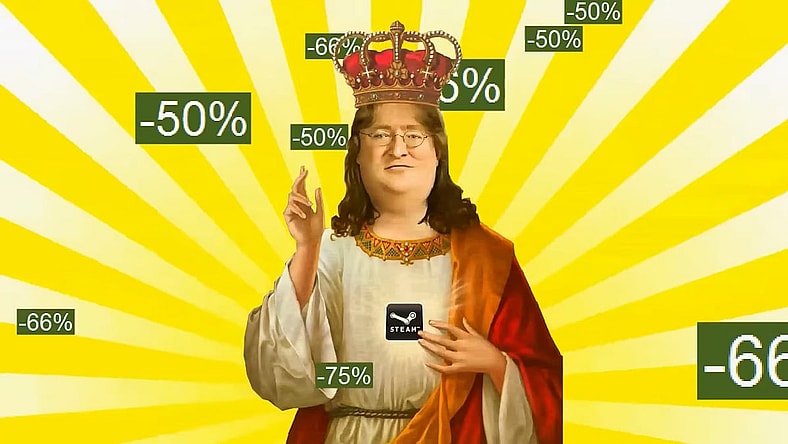
Ethan Evans, former Amazon vice president of Prime Gaming, has admitted that the company failed to topple Valve’s Steam platform for over fifteen years. He explains how being the bigger company meant nothing, when Valve already satisfied their customers.
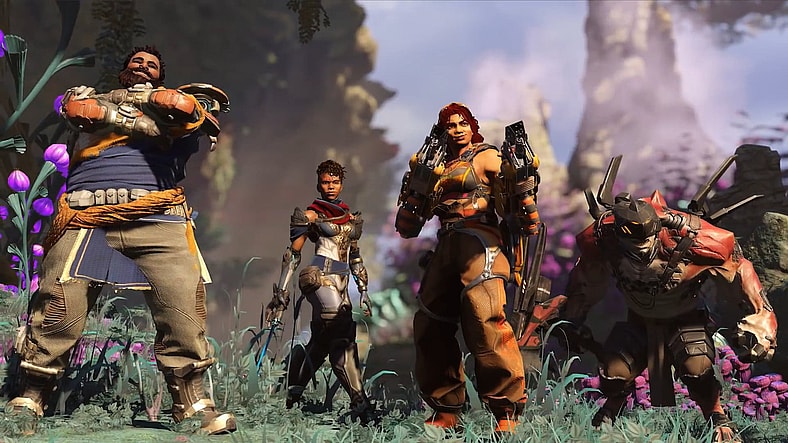
Evans took to LinkedIn, waxing nostalgic about this failure in a recent post. “As VP of Prime Gaming at Amazon, we failed multiple times to disrupt the game platform, Steam. We were at least 250x bigger, and we tried everything. But ultimately, Goliath lost. Here’s why.”
Evans go on to explain in-depth, “The 15+ year long attempt to challenge Steam started before I was VP of Prime Gaming, but we never cracked the code. Not under my leadership or anyone else’s. The first way we tried to enter the online-game-store market was through acquisition. We acquired Reflexive Entertainment (a small PC game store) and tried to scale it. It went nowhere.”
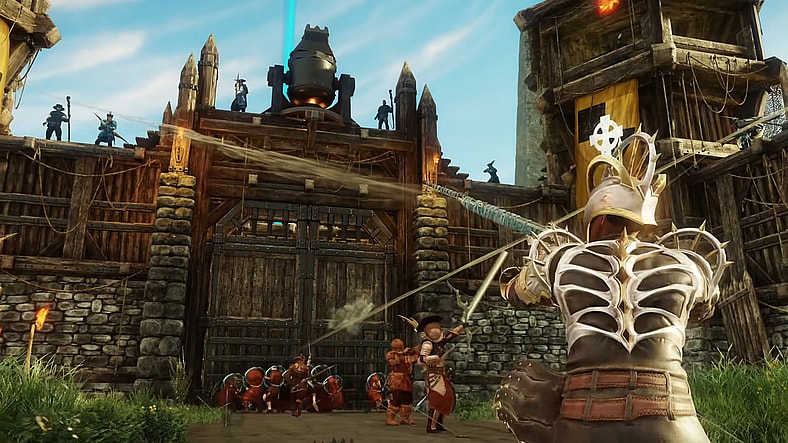
“Then, after buying Twitch, we created our own PC games store,” Evans continues. “Our assumption was that gamers would naturally buy from us because they were already using Twitch. Wrong.”
“Finally, we built ‘Luna,’ a game streaming service that let people play without a high-end PC. Around the same time, Google tried the same thing with their product ‘Stadia.’ Neither gained significant traction. The whole time, Steam dominated despite being a relatively small company (compared to Amazon and Google),” Evans highlights.
“The mistake was that we underestimated what made consumers use Steam. It was a store, a social network, a library, and a trophy case all in one. And it worked well,” Evans praises.
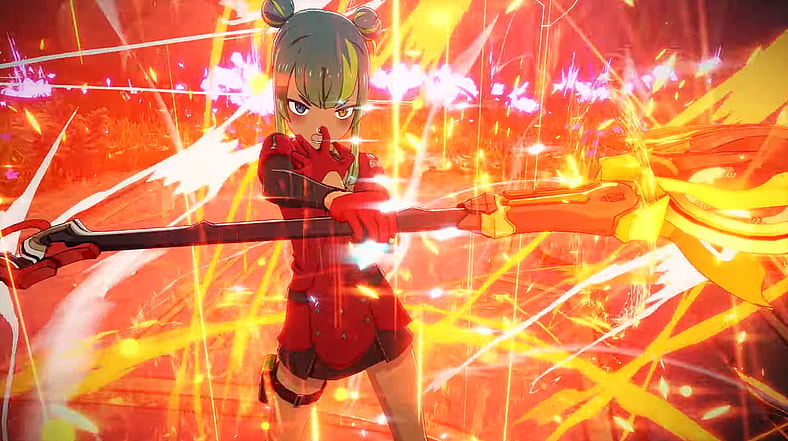
“At Amazon, we assumed that size and visibility would be enough to attract customers, but we underestimated the power of existing user habits. We never validated our core assumptions before investing heavily in solutions. The truth is that gamers already had the solution to their problems, and they weren’t going to switch platforms just because a new one was available,” Evans proposes.
“We needed to build something dramatically better, but we failed to do so. And we needed to validate our assumptions about our customers before starting to build. But we never really did that either. Just because you are big enough to build something doesn’t mean people will use it,” Evans confesses.
Evans goes on to recommend a newsletter by James Birchler, leadership coach, discussing customer insight techniques and lessons. Other recent posts by Evans share personal anecdotes while promoting his and others’ newsletters.

Stephen Lenz, Amazon’s Workplace Health and Safety project manager, agreed, but expanded upon Evans’ points. “Steam is a MUCH bigger beast than people give it credit for, and the level of reinforcement that that this [sic] company has is surreal…it’s built on YEARS and YEARS of trust and a loyal fan-base.
“Valve Corp is in a league of its own and just because one is BIG (Like Amazon) doesn’t mean that it is wise to take on a hidden monster that is even bigger than it. Epic Games learned the hard way similarly in this instance too trying to take the lead against Steam and spent a lot of money to really do nothing to Steam in the end,” Lenz reiterated.

Lenz closed by praising Birchler’s ideas, and how the sunk cost fallacy is common within the gaming industry. Evans quipped back, “Yes. Steam (Valve) is easy to underestimate.”
Self-employed tech-lead Piotr Czech further explained an element Evans hadn’t directly mentioned. “Apple sells prestige, not phones. Steam sells protection of gamers’ rights, not games. Steam is unbeatable because gamers know that Gaben [Gabe Newell] puts users before profits, and it’s not about the store, social network, library, and trophies.”
“Public companies won’t win unless something bad happens to Steam because they are expected to take care of their shareholders over users. People also use GOG because of the DRM-free policy and backward compatibility of old games.”
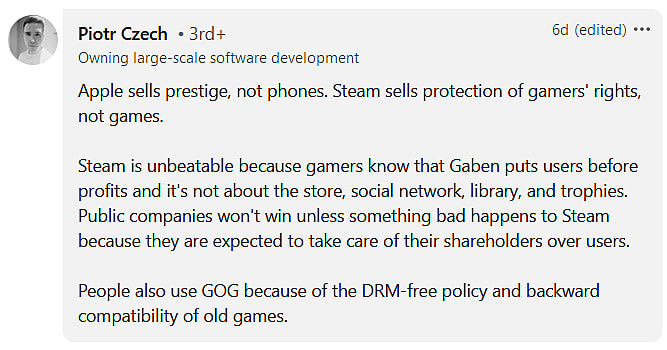
Discussing the post on X, @MakroArt was far less kind to Evans, echoing Czech’s comments. “He doesn’t get it. People use steam because steam is a legitimately good, kind service.
“They cost themselves money for no other reason than to protect players and devs from each other. They pioneer consumer friendly services and consistently force other companies to follow their good practices. Honestly they’re holding the game industry up like atlas holding up the globe at this point,” @MakroArt evangelizes.

@MakroArt went on to list their “favorite industry standards/features that started with or are only on steam.” This included free patches for developers, unlimited downloads for players, family sharing, protecting developers from chargeback fees, “guaranteed” refunds and DLC refunds, free online gameplay, and having the “least censorship” and being an easy platform for developers to access.
It should be noted the Steam refund policy came after Valve lost a legal case in Australia, due to them not having one. Nonetheless, the DLC refund policy was introduced in November last year, which allows refunds when DLC or Season Pass content is not released.
The love for Steam continues, with memes over their sales (resulting in bought-yet-unplayed games) and the nigh-sainthood level reverence for Gaben.
